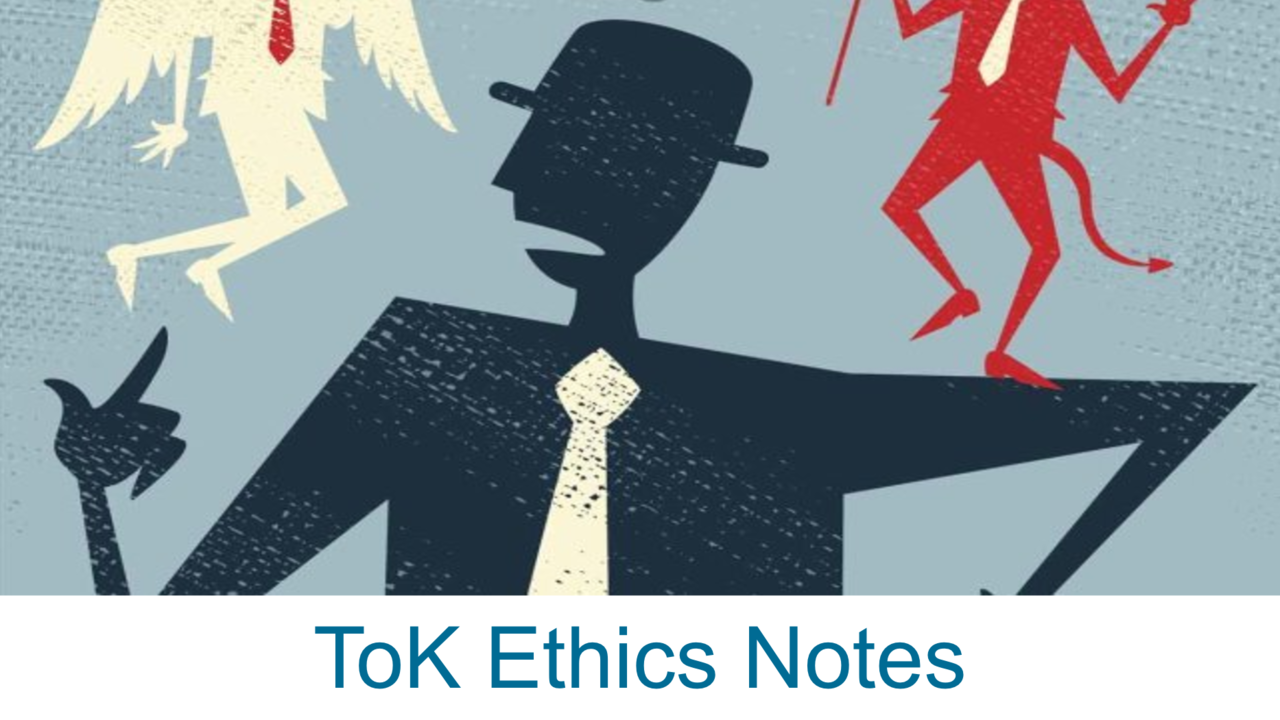Ethics Notes - Theory of Knowledge

I know you'll find these TOK Ethics notes helpful, but there is an even better version available to our supporting members here (the full Ethics notes) --along with some very helpful TOK videos and other sources for your TOK essay and exhibition. Click here to join IBMastery.
Ethics Quotes
 "Everything has been figured out, except how to live." (Jean-Paul Sartre)
"Everything has been figured out, except how to live." (Jean-Paul Sartre)- "Happiness is good health and a bad memory." (Ingrid Bergman)
- "The foundation of morality is to have done, once and for all, with lying." (Thomas Henry Huxley)
- "A moral being is one who is capable of comparing his past and future actions or motives, and of approving or disapproving them." (Charles Darwin)
- "Every man, in his own opinion, forms an exception to the ordinary rules of morality." (William Hazlitt)
- "Morality is not the doctrine of how we may make ourselves happy, but how we may make ourselves worthy of happiness." (Immanuel Kant)
- "A man without ethics is a wild beast loosed upon the world." (Manley Hall)
- "The first step in the evolution of ethics is a sense of solidarity with other human beings." (Albert Schweitzer)
Definitions of Ethics
- "Ethics is a code of values which guide our choices and actions and determine the purpose and course of our lives." (Ayn Rand)
Ethical Questions
- Here is a great set of ethical questions students can work through on their own. Or it can serve as a handy list of ethical challenges to discuss in class conversations, essays or exhibitions.
Deontology, Consequentialism and Virtue
There are many ways to approach ethics, but 3 very common theories tend to come up.
- Deontology. (The Deontological approach). This is an approach to ethics in which morality is determined by one's adherence to duty or laws. Kantian ethics is a deontological approach. In Kantian ethics the only actions that are moral are those performed out of one's duty to follow the moral law (Nakazawa).
- Consequentialism Here the focus is not on rules, but rather on the consequences. In short, the ends can justify the means. Utilitarianism is a consequentialist approach; here, what is ethical is what brings the greatest happiness to the greatest number of people.
- Virtue Ethics. Here the focus is on showing virtue, or character rather than on specific ethical acts. Ethical actions are performed by ethical, virtuous, moral people, so the focus is on being a good person. Aristotelian ethics uses virtue ethics; here the highest moral good is to possess certain characters traits (Nakazawa).
Okay, that's all for the TOK Ethics notes preview. Click here to become a subscriber and you'll get the full, premium Ethics notes right away. (Subscribers click here for the full TOK Ethics notes.)


Cite this page as:
Woods, Tim. “Ethics Notes - Theory of Knowledge” IBMastery 2 April 2021. Web.
Woods, Tim. “Ethics Notes - Theory of Knowledge” IBMastery 2 April 2021. Web.







